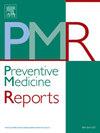Tailored intervention for smoking cessation among migrant smokers in health centers for precarious people in Paris: A co-design approach
IF 2.4
3区 医学
Q2 PUBLIC, ENVIRONMENTAL & OCCUPATIONAL HEALTH
引用次数: 0
Abstract
Objective
Certain groups of migrants in Europe exhibit higher smoking prevalence compared to non-migrants, with social inequalities significantly impacting their health outcomes. Culturally adapted smoking cessation interventions are more effective for migrants. Co-design a smoking cessation intervention tailored to migrant smokers attending in health centers for precarious people in Paris.
Methods
Following an adapted experience-based co-design iterative process to gradually refine our crafted intervention, the study brought together migrants, health professionals, representatives from associations, and a research team between January and July 2024. Pre-workshop enabled to adapt ideation working tools to better suit the public. In the initial phase, migrants helped shape intervention design based on their tobacco use habits and preferences. Subsequent workshops benefitted medical and tobacco-expertise from healthcare workers in co-design workshops, refining our prototypes and ensuring they adhere to evidence-based practices. Data collection included questionnaires, audio-recordings, and field notes analyzed through thematic analysis.
Results
Fourteen migrants (mostly undocumented, from African countries, and current smokers) and fourteen healthcare workers (mostly medical practitioners or nurses) were involved in the co-design sessions. The co-designed intervention consisted in a monthly face-to-face participant-led group discussion supervised by health professionals with flexible attendance combined with WhatsApp group support with facilitated access to nicotine replacement therapy or existing interventions, and adapted health literacy materials.
Conclusion
Co-designing intervention with migrants enabled the development of an intervention addressing their barriers to smoking cessation. Combining peer-support, digital engagement, and facilitated access to existing resources may improve uptake and effectiveness of cessation programs among this vulnerable population.
巴黎不稳定人群健康中心移民吸烟者戒烟的量身定制干预:一种共同设计方法
目的与非移民相比,欧洲某些移民群体的吸烟率更高,社会不平等严重影响了他们的健康结果。适应文化的戒烟干预措施对移民更有效。共同设计一项针对在巴黎不稳定人群健康中心就诊的移民吸烟者的戒烟干预措施。方法采用基于经验的协同设计迭代过程,逐步完善我们精心设计的干预措施,该研究于2024年1月至7月期间汇集了移民、卫生专业人员、协会代表和一个研究团队。预备工作坊使创意工作工具更适合市民。在最初阶段,移民根据他们的烟草使用习惯和偏好帮助制定干预设计。随后的讲习班受益于共同设计讲习班中卫生保健工作者的医疗和烟草专业知识,改进了我们的原型并确保它们遵循循证实践。数据收集包括问卷调查、录音和通过专题分析分析的实地记录。结果14名移民(多为无证移民,来自非洲国家,目前吸烟)和14名卫生保健工作者(多为医生或护士)参与了共同设计会议。共同设计的干预措施包括每月一次面对面的小组讨论,由卫生专业人员监督,灵活出席,结合WhatsApp小组支持,促进获得尼古丁替代疗法或现有干预措施,以及改编的健康素养材料。结论:与移民共同设计干预措施,可以开发出解决他们戒烟障碍的干预措施。结合同伴支持、数字参与和便利获取现有资源,可以提高这一弱势群体对戒烟方案的接受程度和有效性。
本文章由计算机程序翻译,如有差异,请以英文原文为准。
求助全文
约1分钟内获得全文
求助全文
来源期刊

Preventive Medicine Reports
Medicine-Public Health, Environmental and Occupational Health
CiteScore
3.90
自引率
0.00%
发文量
353
 求助内容:
求助内容: 应助结果提醒方式:
应助结果提醒方式:


